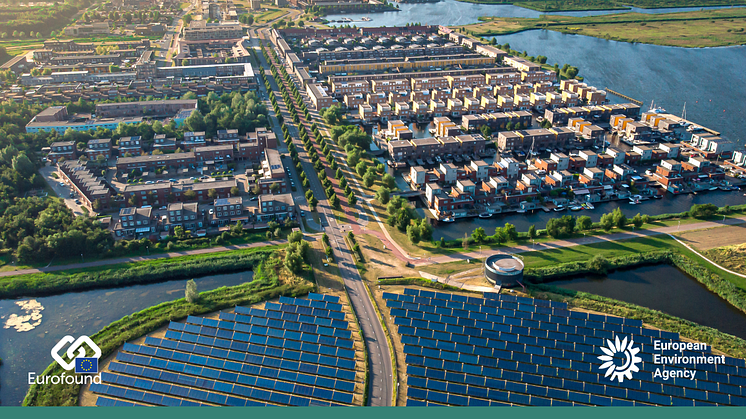
News -
Exploring the socio-economic impacts of the transition to a climate-neutral economy
The move to a climate-neutral economy doesn't only represent risks and costs, but it has the potential to create exciting new opportunities with net employment gains, new business sectors and a healthier environment. The transition to a climate-neutral economy will however have disproportionate effects on certain regions and risks leaving some groups behind. Eurofound and the European Environment Agency have brought together EU level and regional experts and stakeholders to explore what these socioeconomic impacts could be and how policy could respond, presented in this foresight study The transition to a climate-neutral economy: Exploring the socioeconomic impacts.
The European Green Deal set the goal for the European Union to become climate-neutral by 2050. With the adoption of the European Climate Law (June 2021), this became a legally binding target and the EU committed to reducing greenhouse gas emissions by at least 55% (compared with 1990 levels) by 2030. To achieve this, a fundamental transformation of core production-consumption systems such as energy, mobility, and food will be necessary.
The green transformation is expected to create net employment gains, new business sectors and a healthier environment. However, to achieve these goals and generate broad support across the societies, transition needs to be just. Yet distribution of costs and benefits among the people may vary. The labour demand and supply may not be matched with people and their qualifications and regional distribution of jobs. Therefore, it is important to invest in education, re-skilling and bespoke support for job transition and to address social challenges and inequalities, including job polarisation.
‘Europe will need to rethink and reshape its development and economic policies, invest in research and technologies, and transform our understanding of progress and how to measure it,’ says Ivailo Kalfin, Eurofound’s Executive Director. ‘This will affect economies, societies, territories and people. ‘
Socially fair and just access to infrastructure for basic needs, such as housing, transport and digital connectivity, must be provided to allow for wider transition opportunities, which can contribute to job creation.
The current EU policy approach to the just transition could be adapted to include a shift toward sufficiency – meaning more limited consumption – at a societal level and more localised economy models, such as repair and reuse, and circular economy approaches. A fair distribution of resources would be a precondition to such changes.
‘The climate and environment challenges we face urge us to transform our economy in a matter of years, not decades. The good news is that we have the policies and the technologies available to achieve the climate neutrality goal. But the transition can succeed only when we can bring all Europeans on board. We need to invest in our societies, too.’ says Leena Ylä-Mononen, Executive Director of the European Environment Agency.
Broad involvement of civil society, social partners and public authorities in the just transition has emerged as critical to securing and fairly distributing the returns from economic activity and resources as well as navigating potential social conflicts. Involving social partners in the design and monitoring and evaluation of just transition plans is crucial. This dimension is investigated in the forthcoming Eurofound report ‘Supporting regions in the Just Transition: The role of social partners'.
Effective multilevel governance at EU, national and regional levels requires robust investment in capacity development and an integrated EU-wide evidence base drawing on social, economic and environmental data that includes regional and local levels. This is especially important for the long-term systemic change required to reorganise wider production-consumption systems as well as reconfiguring power relationships between the state, the corporate sector, trade unions and citizens.
More information:
- Report: The transition to a climate-neutral economy: Exploring the socioeconomic impacts
- Topic page: European Green Deal
- Topic page: Just transition
- #EurofoundLive webinar 20 June: Understanding the socioeconomic impact of the EU's transition to a climate-neutral economy – How to make the Green Deal a reality?




